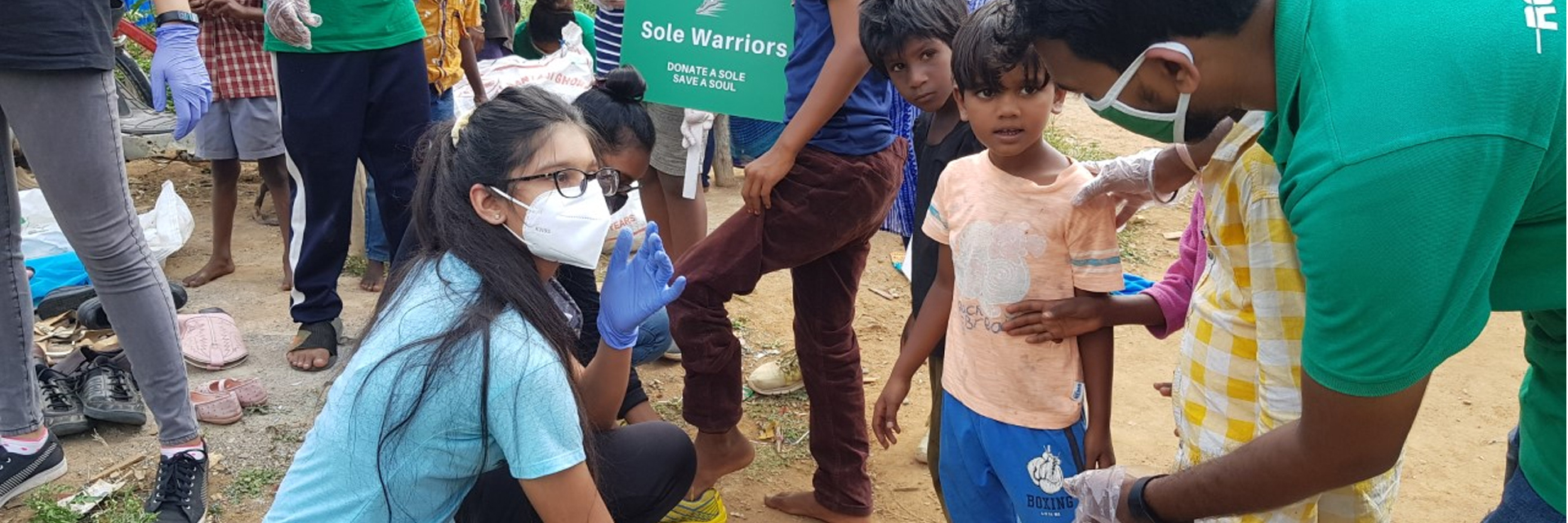A report by India’s centre for budget and policy studies found 71 percent girls reported doing domestic chores during the pandemic, compared to 38 percent boys.
(January 11, 2021) While most girls her age were dealing with the aftermath of the pandemic, 22-year-old Devanshi Ranjan was helping marginalised girls in need. The winner of the prestigious Diana Award for her noble endeavours, this graduate of Lady Shri Ram College for Women, has been advocating for more investment in social causes — gender and youth development since the Corona outbreak. The social activist, Devanshi implemented impactful, innovative initiatives to uplift marginalised groups in highly sensitive rural areas in India.
“When the award was announced, friends and family contacted me after the ceremony and saying, “you’ve made it,” which didn’t sit well as this award is not the end. The Diana Award comes with a sense of responsibility to continue Lady D’s legacy. I’d like to work even harder to make a difference,” says the fervent feminist, who is currently director of operations for Ladli Foundation, USA, an international non-profit corporation in special consultative status with the United Nations ECOSOC. The social activist has taught 1,000 children as volunteer for an NGO as well.
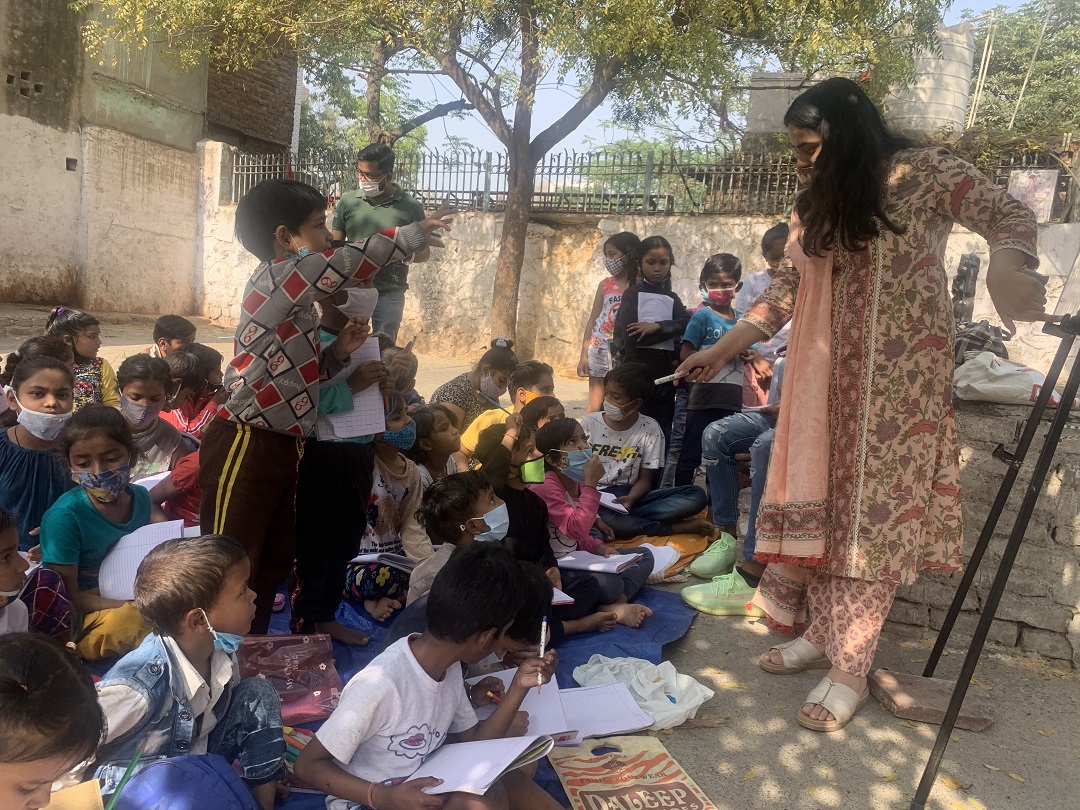
From LSR to Project MicDrop
Born and brought up in Delhi, social activist Devanshi did her schooling in DPS, Vasant Kunj and went on to study at Lady Shri Ram College for Women, University of Delhi where she pursued a degree in BA (hons) political science (2021). Currently pursuing a one-year postgraduate diploma in conflict transformation and peacebuilding at LSR, Devanshi is determined. Her mother, a government school teacher and father, a second-generation police officer nurtured in her, a deep belief in social upliftment. “Public service was a part of my upbringing. However, the realisation of the daily traumas experienced by us (women) hit me somewhere around my first year in college. I realised how this violence is systematic, persistent, pervasive and entrenched deep within the psyche of patriarchal Indian society. This is something I could identify with, despite being privileged, so just think about the struggles of women and gender minorities from historically underrepresented and marginalised groups. This thought made me take up this cause,” shares the girl who loves cats, and feeds two strays daily.
Committed to addressing these lacunas, Devanshi went on to start Project MicDrop with her friends. “My friends Gayatri Ahuja, a current Young India Fellow and Diya Joseph, a JMC political science graduate and I wanted to catalyse individual awareness and collective action to respond to the crises during lockdowns. Project MicDrop aims to be an inclusive, intersectional initiative for discussions of feminism, gender, sex and sexuality. It acts as a catalyst and facilitator towards enabling women, trans and non-binary people to exert agency, freely express and take pride in their identities, and work to challenge prevalent societal norms by creating spaces for feminist discourse,” she tells Global Indian.
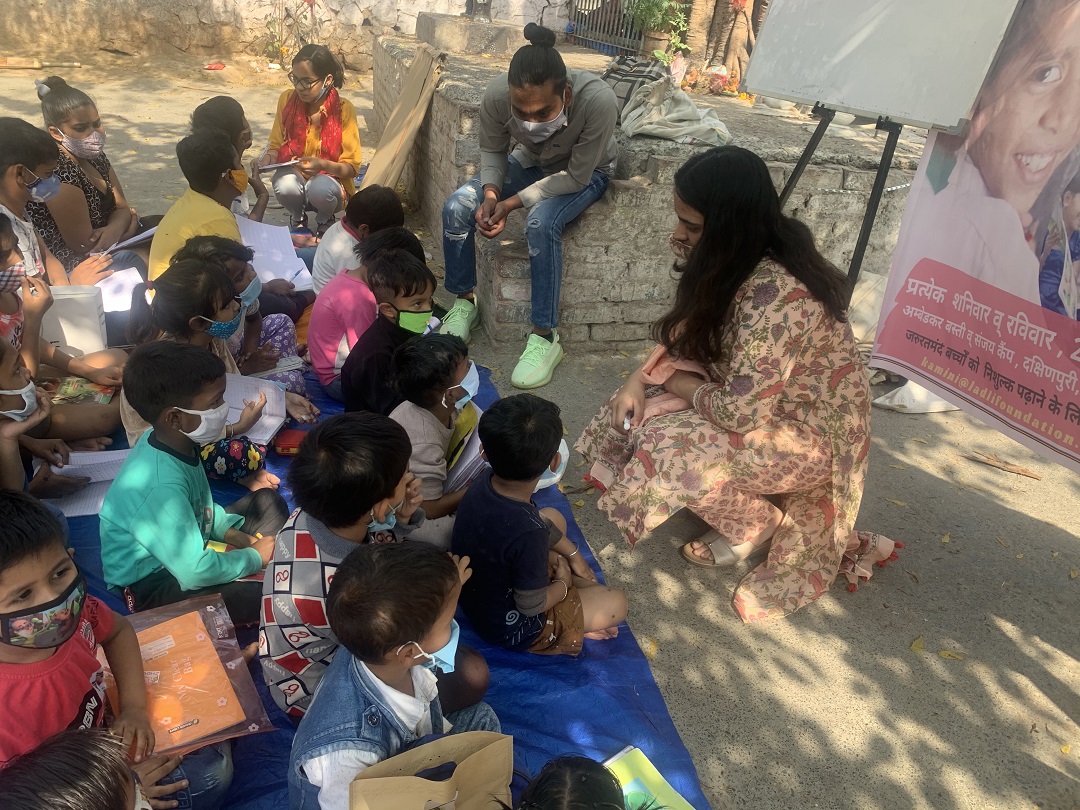

When statistics alarmed her
While doing extensive research about the state of a girl child in rural India, Devanshi came across statistics that alarmed her. A report by India’s centre for budget and policy studies found 71 percent girls reported doing domestic chores during the pandemic, compared to 38 percent boys. Access to a phone was also 11 percent greater for boys. “Girls are facing the burden of household duties, just to sustain themselves for a meal a day. They also have to take care of children because of overcrowding in families. I studied the increase in school dropout rates. The gendered impact of the pandemic put female students at risk of early marriage, early pregnancy, poverty, trafficking and violence,” she ruminates. This led the gender activist to work with girls from marginalised communities. She also joined NGO Tamana as a teacher volunteer, as part of the national social service scheme, an Indian government sector public service programme conducted by the ministry of youth affairs and sports, for the 2018-2019 intake. “In my tenure, I taught over 1,000 students with intellectual and developmental disabilities by engaging them in interactive activities and self-researched learning modules,” she reveals.
Ladki padhao
At Ladli, the social activist aims to achieve gender equality, focusing on prioritising the concern of women’s health and well-being, especially in developing countries. It combats patriarchy, inequality, and gender-based violence. Having been part of Ladli for four years now, Devanshi’s work is focussed on three verticals: education and skill development, women’s empowerment and livelihood, and COVID-19 relief work. During the pandemic, Devanshi chose to focus on girl child education for a couple of reasons. “A girl child is more likely to drop out of school because women are viewed as a liability, not an asset. Women traditionally and even now are viewed as “paraya dhan”(other’s wealth) where the family they’re born in wouldn’t get anything out of them by investing in their education while a male child represents the continuity of lineage. Most hold such beliefs – urban, semi-urban or rural as patriarchy is deeply entrenched in Indian society,” she muses.
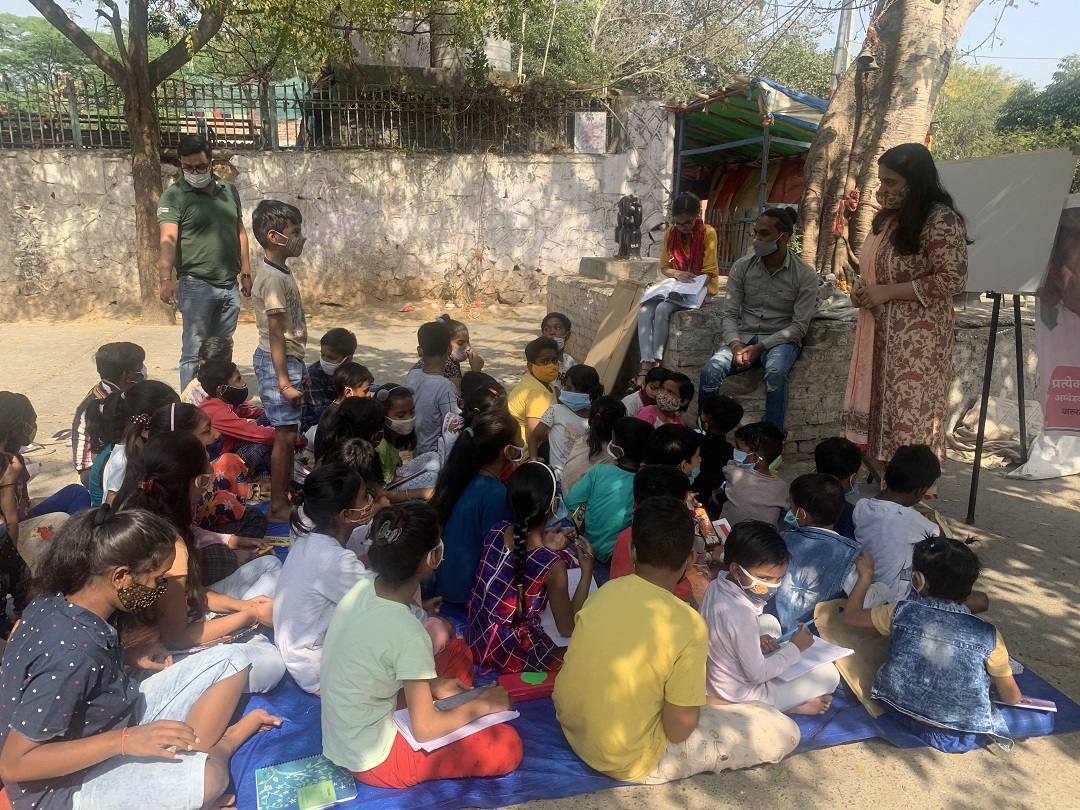

Breaking barriers, overcoming taboos
Given the fact that patriarchal notions are deep-seated in underprivileged situations where families struggle in a financially weak environment, it becomes difficult for children from those areas to have adequate resources to avail education. “Even if there’s the slightest chance for them to avail educational facilities, it always goes to the boys,” Devanshi mulls.
Along the course of her endeavours and studies, she has started replacing certain generic words she grew up hearing to those that aptly fit situations. “I don’t really use the term underprivileged – I’d rather use the words historically marginalised and under-represented groups. I also don’t like the term empowerment of women – the act of empowering someone is just reinforcing the saviour complex,” believes the social activist.
With her interests are centred around international development, gender and policy, Devanshi hopes to continue working, and pursue higher studies in international affairs and policy, with the intersection of gender. Binge watching on OTT, the movie buff loves watching romantic and comedy films with her mother and sister. R & B, classical and rock music are her other faves.
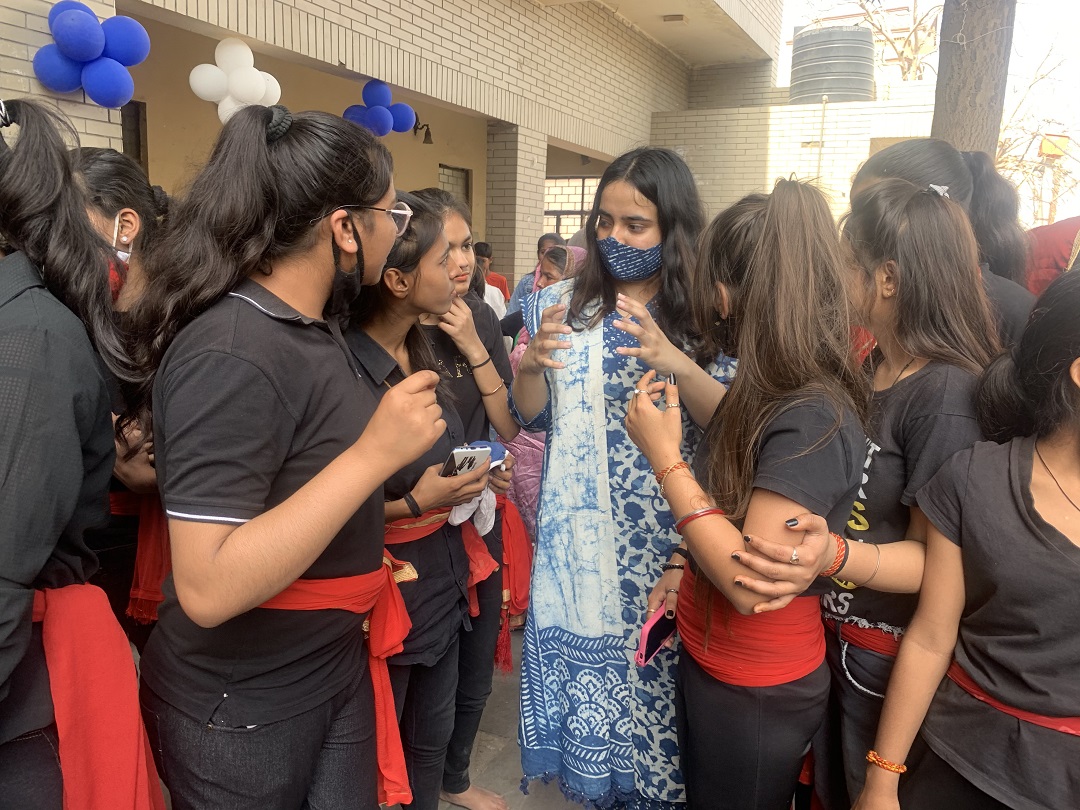

When not dedicating her time to social causes, the gritty 22-year-old enjoys reading political literature. “I also have a keen interest in learning about different languages and cultures. I have studied French for over nine years, and have swiftly picked up Spanish too,” she smiles.
Devanshi believes that it is important for the youth to constantly ask questions, and work towards finding solutions to causes they care about. “Amidst the pandemic, tons of youngsters started their own helplines and initiatives to help people in distress and the youth played a major role in creating change during COVID,” concludes the social activist.


